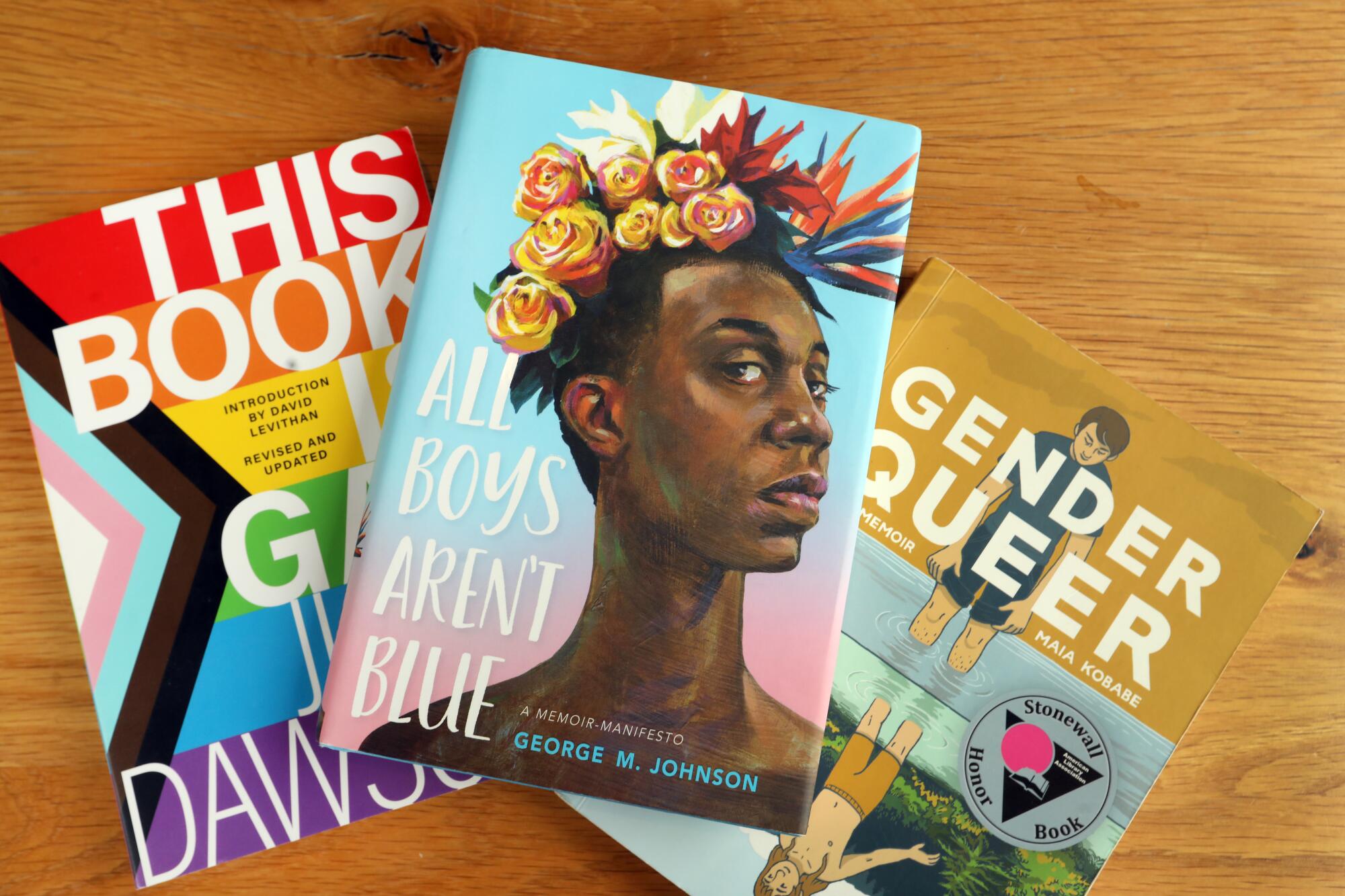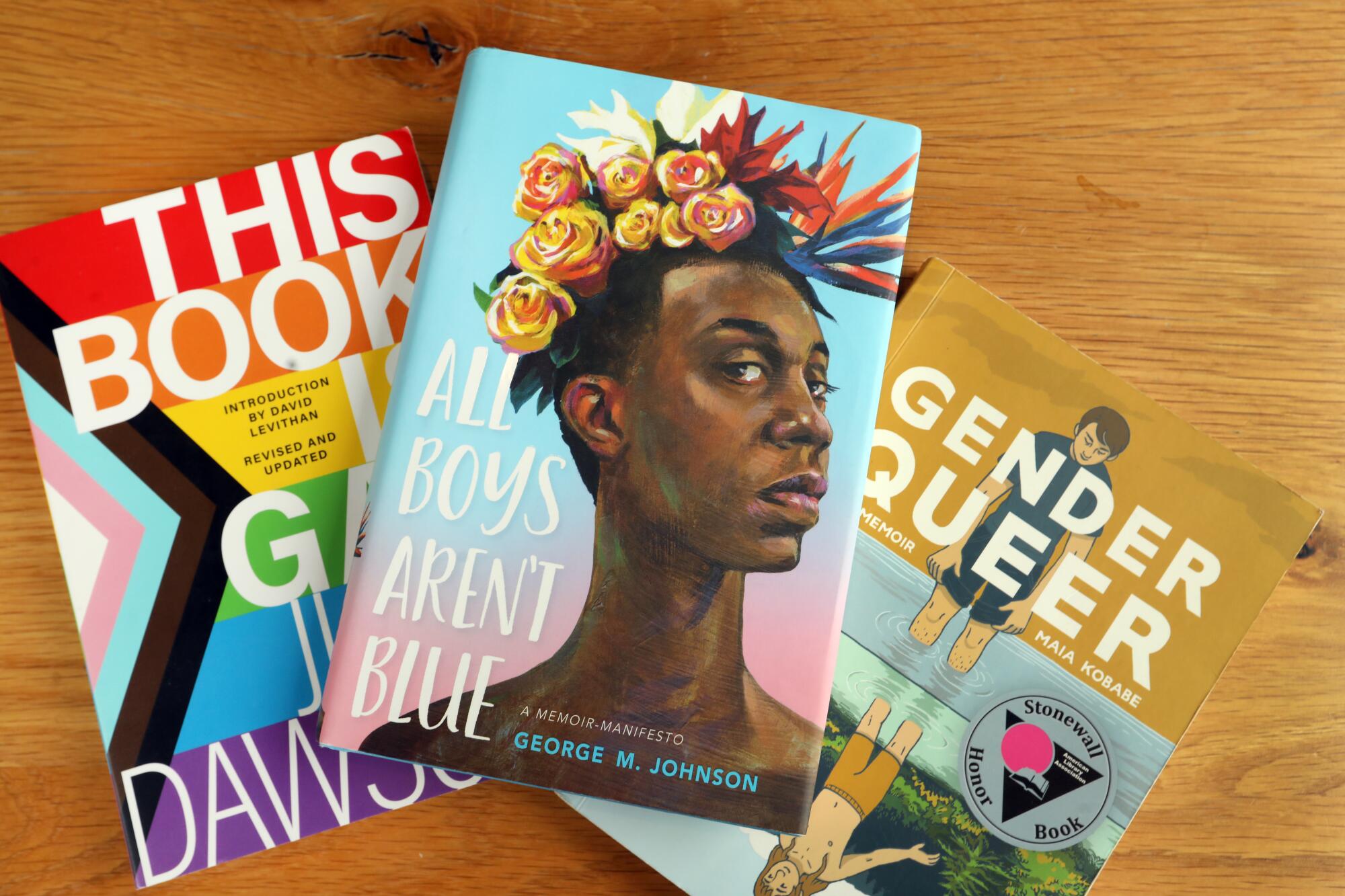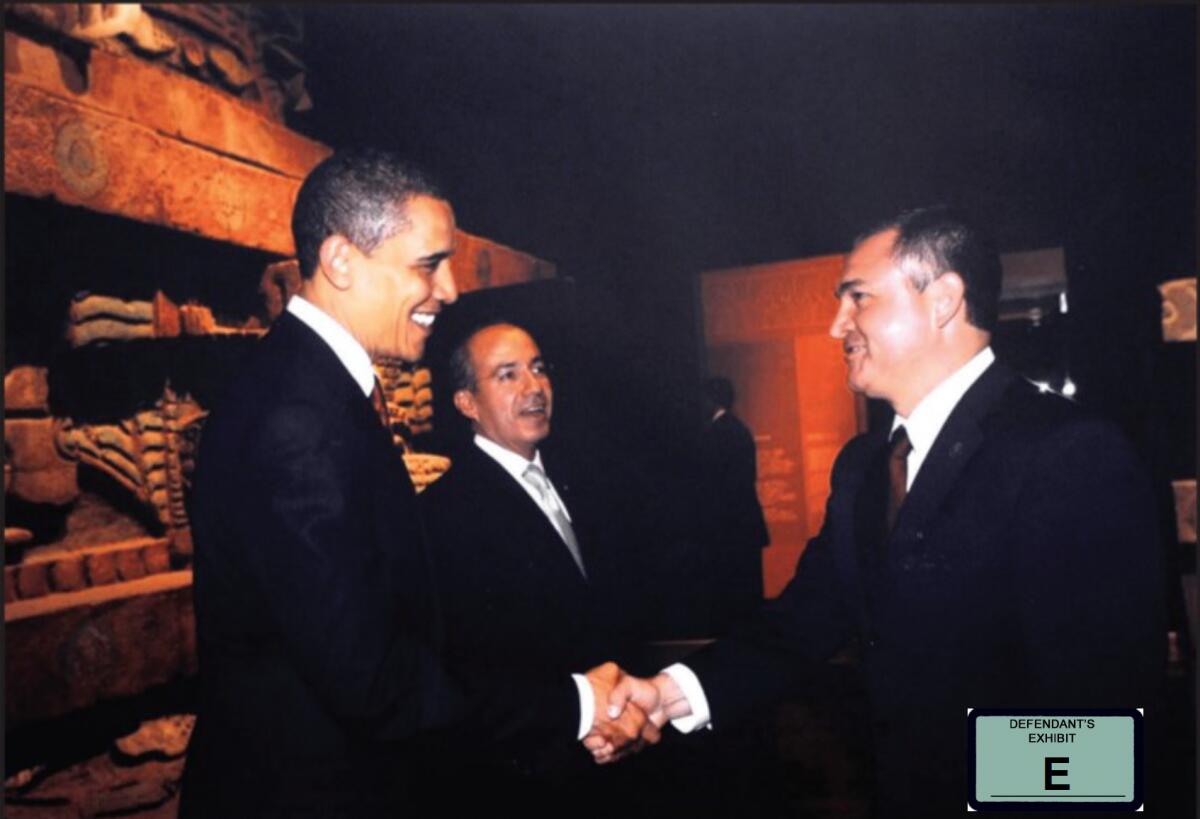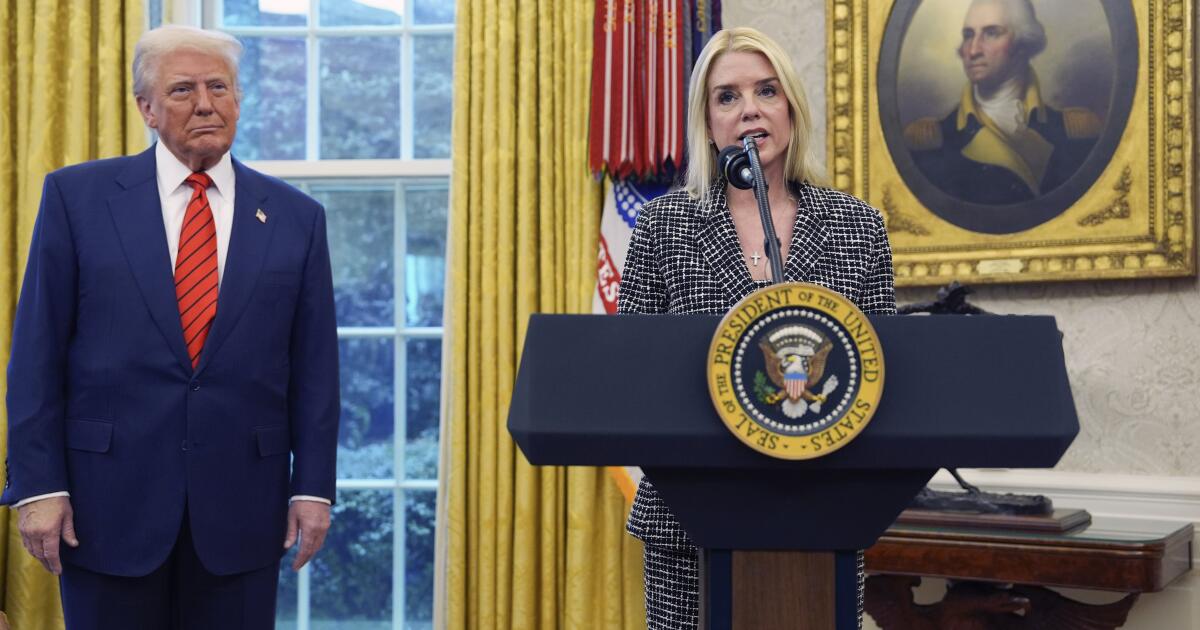The national furor in recent years around banning books on race and gender in public schools is intensifying as President-elect Donald Trump threatens to shut down the Department of Education, emboldening conservatives to end “wokeness” in classrooms.
Battles over books in school libraries have become emblematic of the country’s larger culture wars over race, historical revisionism and gender identity. A new report by PEN America found book bans increased by nearly 200% during the 2023-24 school year, including titles on sexuality, substance abuse, depression and other issues students face in an age of accelerating technologies, climate change, toxic politics and fears about the future.
Book censorship has shaken and divided school boards, pitted parents against parents, and led to threats against teachers and librarians. It is part of an agenda driven by conservative parental rights groups and politicians who promote charter schools and voucher systems that could weaken public education. The issue goes to the heart not only of what students are taught but how federal and state education policies will affect the nation’s politics after one of the most consequential elections in its history.

These three books have been banned in some counties in Florida.
(Carolyn Cole / Los Angeles Times)
“It’s not just about taking a book off a shelf,” said Tasslyn Magnusson, an author and teacher from Wisconsin who tracks book censorship across the U.S. “It’s about power and who controls public education. It’s about what kind of America we were and are. We’re trying to define what family is and what America means. That comes down to the stories we tell.”
She said she feared Trump’s return to the White House would further incite those calling for book bans: “I don’t have lots of hope. It could get a lot worse.”
Over the last year, PEN counted more than 10,000 book bans nationwide that targeted 4,231 unique titles. Most were books dealing with gender, sexuality, race and LGBTQ+ storylines. The most banned title was Jodi Picoult’s “Nineteen Minutes,” about a school shooting that included a short description of date rape. Florida and Iowa — both of which have strict regulations on what students can read — accounted for more than 8,200 bans in the 2023-24 school year.
“This crisis is tragic for young people hungry to understand the world they live in and see their identities and experiences reflected in books,” Kasey Meehan, director of PEN’s Freedom to Read Program, said in a statement. “What students can read in schools provides the foundation for their lives.”
Trump’s calls to close the Department of Education would need congressional approval, which appears unlikely. Although public schools are largely funded and governed by state and local institutions, the department helps pay to educate students with disabilities, provides about $18 billion in grants for K-12 schools in poor communities and oversees a civil rights branch to protect students from discrimination.
But Trump’s election has inspired conservative parental groups, including Moms For Liberty and Parents Defending Education, to strengthen efforts to limit what they see as a liberal conspiracy to indoctrinate children with books and teachings that are perverse, amoral and pornographic.
Tiffany Justice, co-founder of Moms for Liberty, has criticized schools that she says spend too much time on diversity and inclusion when only about one-third of U.S. children are reading at grade level: “We’re talking about public school libraries and content for kids,” Justice told NewsNation after Trump’s victory. “I think it’s very clear that there are certain things that are appropriate for kids, certain things that are appropriate for adults. We’re just getting back to commonsense America.”
Trump’s threat to deny federal funding to schools that acknowledge transgender identities could affect curricula and the kinds of books school libraries stock. During his rally at Madison Square Garden in October, Trump — who has has accused schools of promoting sex change operations — said his administration would get “transgender insanity the hell out of our schools.” Vice President-elect JD Vance has accused Democrats of wanting to “put sexually explicit books in toddlers’ libraries.”

Forsyth County Board of Education members before a meeting in June.
(Forsyth County Schools / AP)
Nicole Neily, president of Parents Defending Education, told Newsmax that she was excited about Trump’s calls to remake education and “clean up a lot of the mess” he has inherited from the Biden administration. Trump “has centered parental rights back in his platform, which is incredible. He has prioritized knowledge and skill, not identity politics,” she said. “American children deserve better, and it is time for change.”
In nominating Linda McMahon to be his secretary of Education, Trump appears to be pushing for more conservative parental control over what is taught and read in classrooms. A former professional wrestling executive, McMahon chairs the America First Policy Institute, a Trump-connected organization that has criticized schools for teaching “racially divisive” theories, notably about slavery and a perspective about the nation’s founding it views as anti-American.
“Today’s contentious debates over using classrooms for political activism rather than teaching a complete and accurate account of American history have reinvigorated calls for greater parental and citizen involvement in the curriculum approval process,” the institute’s website says.
Culturally divisive issues, including race and LGBTQ+ themes, cost school districts an estimated $3.2 billion during the 2023-24 school year, according to a recent study called “The Costs of Conflict.” The survey — published by the Institute for Democracy, Education and Access at UCLA — found that battles over books and teaching about sexuality and other topics led to increased expenses for legal fees, replacing administrators and teachers who quit, and security, including off-duty plainclothes police officers.
“Are we really going to spend our tax dollars on these kinds of things?” asked Magnusson. “After Trump was elected, I saw a bunch of middle-class white ladies like me who were saying, ‘This isn’t America.’ But maybe it is America.”
One school superintendent in a Western state told the study’s researchers that his staff was often consumed with correcting misinformation and fulfilling public record requests mainly from hard-line parental rights activists attempting to exploit cultural war issues to discredit the district. “Our staff are spending enormous amounts of time just doing stupid stuff,” the superintendent said. “The fiscal costs to the district are enormous, but [so are] the cultural costs of not standing up to the extremists. If someone doesn’t, then the students and employees lose. … It’s the worst it’s ever been.”
The survey found that 29% of 467 school superintendents interviewed reported that teachers and other staff quit their profession or left their districts “due to culturally divisive conflict.”
Censoring books in school libraries grew out of opposition to COVID-19 restrictions. A number of conservative parental groups, including Moms for Liberty, which invited Trump to speak at its national convention in August, turned their attention to lobbying against “liberal indoctrination.” Their protests against what they criticized as progressive teaching on sexuality and race were focused on increasing conservative parental control over a public education system that was struggling at teaching children reading and math.

Karen Frost of Moms for Liberty speaks at a rally in Simi Valley last year.
(Myung J. Chun / Los Angeles Times)
That strategy has led to a national, right-wing effort that is “redefining government power to restrict access to information in our schools,” said Stephana Ferrell, co-founder of the Florida Freedom to Read Project. “This movement to protect the innocence of our children believes if children never read it in a book they won’t have to know about it and can go on to lead harmonious lives. But books teach us cautionary tales. They instruct us. You can’t protect innocence through ignorance.”
School districts across the country have removed “Gender Queer” by Maia Kobabe and “All Boys Aren’t Blue” by George Johnson, which are about gender identity and include graphic depictions of sex, along with titles by renowned writers such as Toni Morrison, Kurt Vonnegut, George Orwell, Maya Angelou and Flannery O’Connor.
Surveys show that most Americans do not favor censorship. The Florida Freedom to Read Project and similar organizations around the country have called for thorough public reviews of challenged books to prevent one scene or passage from being taken out of context. Moderate and liberal parents groups over the last two years have also become more active in school board politics. They have supported school board candidates who have defeated those backed by Moms for Liberty in Texas, Florida and other states.

School districts across the country have removed “Gender Queer” by Maia Kobabe from school libraries.
(Carolyn Cole / Los Angeles Times )
“People say the pendulum will swing back,” said Ferrell. But, she said, conservatives want to “stop the pendulum from swinging back.”
Picoult is accustomed to conservatives attempting to censor her. Her books have been banned in schools in more than 30 states. Published in 2007, “Nineteen Minutes” explores the lives of characters, including a girl who was raped, in a town leading up to a school shooting and its aftermath.
“Having the most banned book in the country is not a badge of honor. It’s a call for alarm,” said Picoult, whose books have sold more than 40 million copies. “My book, and the 10,000 others that have been pulled off school library shelves this year, give kids a tool to deal with an increasingly divided and difficult world. These book banners aren’t helping children. They are harming them.”



